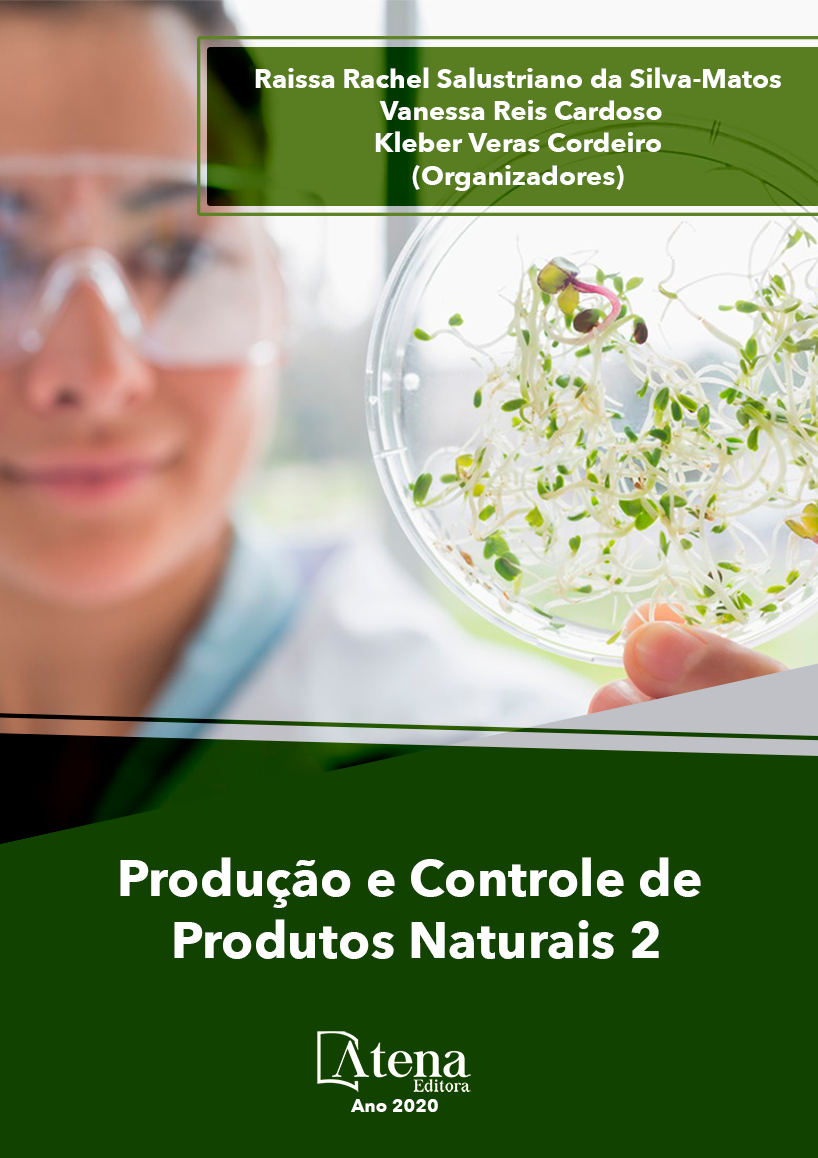
AVALIAÇÃO IN VITRO DE ÓLEOS ESSENCIAIS DE COPAÍBA, BURITI E TUCUMÃ PARA CONTROLAR Sthapylococcus aureus
Plantas medicinais estão sendo cada vez mais estudadas para o tratamento de doenças a fim de minimizar os efeitos negativos causados pelo uso indiscriminado de antimicrobianos. As propriedades biológicas dos óleos essenciais têm sido amplamente exploradas em busca de alternativas contra microrganismos patógenos. O presente capítulo tem o objetivo trazer informações acerca da ação antimicrobiana in vitro dos óleos essenciais de Copaifera langsdorffii, Mauritia flexuosa e Astrocaryum vulgare, sobre cepa bacteriana Staphylococcus aureus. Foram realizados estudos comparativos com o antimicrobiano Amoxicilina (30 µg) como controle positivo e com água, controle negativo. A atividade microbiana foi determinada pelo teste de sensibilidade antimicrobiana e pela concentração inibitória mínima (CIM), determinada pela atividade antimicrobiana com base no diâmetro dos halos de inibição. Para o teste de sensibilidade antimicrobiana foi utilizada a técnica de difusão em ágar Mueller Hinton. A concentração avaliada e suas diluições seriadas não promoveram inibição do crescimento microbiano. No teste de sensibilidade antimicrobiana, S. aureus foi sensível ao antibiótico Amoxilina, porém com nenhum dos óleos testados obteve-se resultado satisfatório nas concentrações avaliadas. Conclui-se que óleos essenciais de copaíba (Copaifera langsdorffii) e buriti (Mauritia flexuosa) e Tucumã (Astrocaryum aculeatum), na maneira como foram preparados, não apresentam capacidade para controlar o crescimento in vitro de Sthapylococus aureus.
AVALIAÇÃO IN VITRO DE ÓLEOS ESSENCIAIS DE COPAÍBA, BURITI E TUCUMÃ PARA CONTROLAR Sthapylococcus aureus
-
DOI: 10.22533/at.ed.0012009043
-
Palavras-chave: antibiograma, atividade antimicrobiana, concentração inibitória mínima, plantas medicinais da Amazônia, cerrado
-
Keywords: antibiogram, antimicrobial activity, Amazonian medicinal plants, cerrado, minimum inhibitory concentration
-
Abstract:
Medicinal plants are being increasingly studied for the treatment of diseases in order to: minimize the negative effects caused by the indiscriminate use of antimicrobials. The biological properties of essential oils have been widely explored in searching for alternatives against pathogenic microorganisms. This chapter aims to provide information about the antimicrobial action in vitro of the essential oils of Copaifera langsdorffii, Mauritia flexuosa and Astrocaryum vulgare, on the bacterial strain Staphylococcus aureus. Comparative studies were performed with antimicrobial-Amoxicillin (30-ug) as a positive control and with water as a negative control. The microbial activity was determined by the antimicrobial sensitivity test and the minimum inhibitory concentration (MIC), determined by the antimicrobial activity based on the diameter of the inhibition halos. In the antimicrobial sensitivity test, the Mueller Hinton agar diffusion technique was used. The concentration evaluated and its dilutions serial did not promote microbial growth inhibition. In the antimicrobial sensitivity test, S. aureus was sensitive to the antibiotic Amoxiline. However, with none of the oils tested, a satisfactory result was obtained at the concentrations evaluated. We concluded that the essential oils of copaiba (Copaifera langsdorffil), buriti- (Mauritia flexuosa) and tucumã (Astrocaryum aculeatum), in the way they were prepared, were not able to control the in vitro growth of in Sthapylococus aureus.
-
Número de páginas: 15
- Liandra Maria Abaker Bertipaglia
- Aline Alves Rezende
- Gabriel Maurício Peruca de Melo
- Wanderley José de Melo


